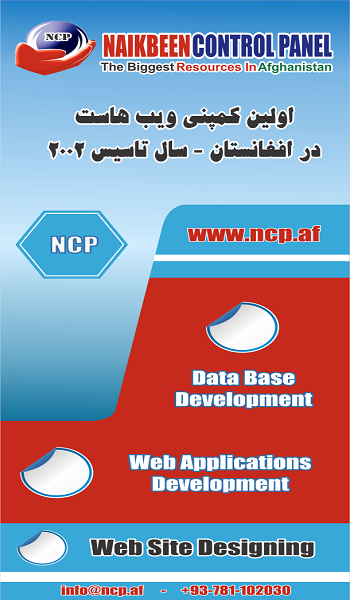General purpose of the position
The engagement of a national co-coordinator through INTERSOS is aimed at improving ownership of theoperational response by partners and local authorities and have a meaningful involvement in co-leadingan effective humanitarian response which is adapted to the local context and implemented in strongcollaboration with local communities and other stakeholders.
As already mentioned, as for the co-coordination office purpose, the overall purpose of co-coordinator isto enhance the timeliness and impact of appropriate humanitarian health assistance for crisis-impactedcommunities and to strengthen the collective health outcomes of the response, in line with the six corecluster functions:
(1) To support service delivery.
(2) To inform Health Cluster/HCT's strategic decision making.
(3) To develop sectoral strategies.
(4) To monitor and evaluate performance.
(5) To build national capacity in preparedness/ contingency planning.
(6) To support advocacy.
Main responsibilities and tasks
The Health Cluster Co-Coordinator will work in partnership with his/her counterpart from the CLA (WHO)as the Health Co-lead to provide leadership and facilitate the processes that will ensure a well-coordinated, strategic, adequate, coherent, and effective response in AFG. The co-coordinator will also beresponsible for ensuring that the NGO membership is contributing to and sharing cluster responsibilitiesand will play a lead role in developing active engagement and technical capacity of members of theHealth Cluster.
The following core functions, beside other priorities set-up during the period of co-coordination, will beperformed:
1.Strengthen pre-existing sectoral coordination by maintaining appropriate links and dialogue withnational and local authorities, local civil society, and other relevant actors, respecting theirrespective mandates and programme priorities. Taking reasonable measures to proactivelyengage with and support NGOs involved in health programs to participate in clustercoordination and at each phase of the Humanitarian Programme Cycle. Ensuring that the HealthCluster position is informed by the NGO perspective.
2.Lead and/or co-lead, coordinate and conduct health needs assessments with the health partnersand other sectors (joint/multisectoral), to identify humanitarian health needs of the targetpopulations.
3.Contribute effectively to inter-cluster coordination forums and cooperate with other clusters,Government counterparts, and relevant authorities (as appropriate) in planning, coordination,and operational activities, ensuring that the NGO community is contributing to and sharingresponsibilities.
4.Ensure protection and early recovery are mainstreamed and awareness of the different needsand capacities of women, girls, boys and men of all ages, people with disabilities, and otherdiversity characteristics such as ethnicity and religion are informing what we do, how we do itand with whom to promote meaningful access, safety, and dignity in all phases of the healthsector response.
5.Participate actively in gap analysis, priority setting reinforcing the complementarity of partneractions by avoiding duplication and gaps, while ensuring that the health sector/cluster respondsin a harmonized and coherent manner to the health needs of all Afghans, across the country,and independently from their location of residence or socio-cultural background.
6.Ensuring adequate and coordinated data collection (Assist in leading the harmonization ofhealth information management tools amongst the cluster members), reporting and effectiveinformation sharing, reflecting the agreed minimum standards are in place and that all partnerscontribute on a regular basis to enable appropriate monitoring and evaluation and review theimpact of the cluster activities and progress against the strategic Health Cluster objectives.
7.Participate in reviews of coordination mechanisms and their adaptation over time to reflect theevolving crisis and the capacities of local actors.
8.Convene and facilitate regular Health Cluster meetings, ensuring that discussions areparticipatory and results oriented. Ensure that the NGO members of the cluster are kept fullyinformed of the meetings and any decisions that may take place outside of regular HealthCluster meetings.
9.Promote the leadership roles of NGOs within the cluster and ensure that all Health Clusterworking groups have active national and international NGO participation to help ensure thatNGOs support and influence the cluster’s work.
10.Promote/support training and capacity building of health sector personnel, of partners andnational authorities.
11.Represent the interests of the Health Cluster in discussions with stakeholders on priorities,resource mobilization and advocacy. Taking additional steps to ensure that the resourcemobilization and advocacy efforts fairly represents and benefits NGOs as well as the UN agenciesin support of the agreed Health Cluster strategy.
12.Ensure adequate contingency planning, preparedness, and surge coordination, for newemergencies and seasonal adaptation of responses that reflect the actual and potential to scale-up capacities of all partners (local and international).
13.The NGO Co-Coordinator should act as a focal point for receiving NGO concerns to raise thesewith the Health Cluster Coordinator and the Cluster Lead Agency to strengthen accountabilityand transparency of the cluster’s decisions and work.
14.Act as Health Cluster Coordinator Officer in Charge whenever needed.
15.Assist in providing support and strategic direction to AFG Health Cluster/sector in thedevelopment of the health sector components of HNO (Humanitarian Needs Overview), PMR(Periodic Monitoring Report), FTS (Financial Tracking Service), HRP (Humanitarian Response Plan),and other interagency planning and funding documents that are part of the IASC HumanitarianProgram Cycle.
16.Promote adherence to standards and best practices by all Health Cluster/sector working grouppartners in the cluster considering the need for local adaption. Promote use of the Global HealthCluster Guide to ensure the application of common approaches, tools and standards.
17.Ensure appropriate links among humanitarian actions and longer-term health sector plans,incorporating specific risk reduction measures.
18.Capacity Building: Identify urgent training needs in relation to technical standards and protocolsfor the delivery of key health services to ensure their adoption and uniform application by allHealth Sector/Cluster partners in the cluster and coordinate the dissemination of key technicalmaterials and the organization of workshops or in-service training. Arrange/conduct directtraining in health for key national and local stakeholders as feasible, in line with agreed uponsectoral priorities in the work plan; in the case that direct access is not possible, arrange foralternative, hybrid or mixed learning approaches to capacity building.
Education Advanced
Professional experience
Professional requirements
Please submit your applications by filling the INTERSOS Standard Job application form (https://www.acbar.org/applicationform) along with an updated CV and Cover letter to jobs.afghanistan@intersos.org or can send the hard copy of the applications to any of the INTERSOS offices. Please note that applying without filling job application form may result in disqualifying the applications to review for shortlisting
Please indicate the position title, Vacancy Number, and Location in the Subject Line of your email otherwise your application will not be considered.
Please note that only shortlisted applicants will be contacted with and called for a test/Interview.
Qualified People with Physical Disabilities and Female candidates are highly encouraged to apply.
jobs.afghanistan@intersos.org

